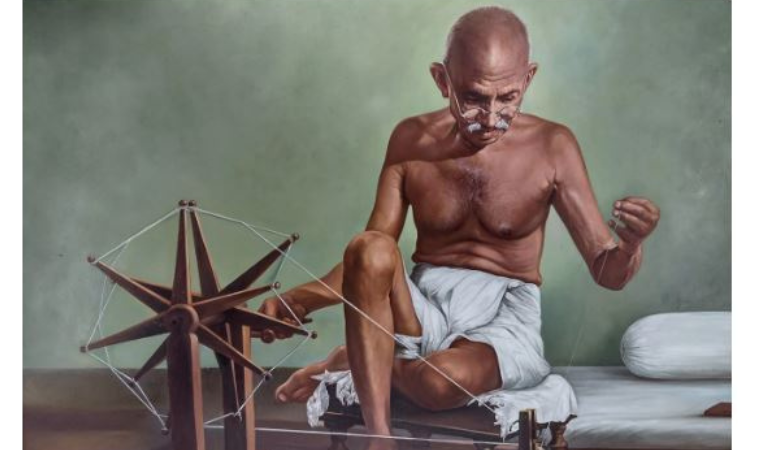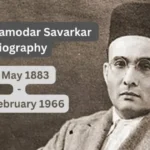India stops every year on October 2 to pay a tribute to Mahatma Gandhi, the Father of the Nation. For some, it is a holiday. To other people it is a school program, a community event or a social media post. But the teachings and life of Gandhi are more than mere ritual actions. He was born in 1869 and turned into an icon of boldness, honesty, and peace. His quest compelled India to be inspired and is inspiring the world.
Gandhi’s message seems urgent even in 2025. The world is both closer than ever before and it is also more divided. Wars fight on continents. Happiness diffuses more quickly than hate. Religion, politics and class have continued to divide communities. We are guided by the principles of Gandhi which include ahimsa (non-violence) and satyagraha (truth-force). They demonstrate that freedom is achieved not through aggression or retaliation but through courage, conversation and moral uprightness.
In addition, Gandhi preached that service and not power is leadership. In today’s world, crises challenge leaders across the globe, making Gandhi’s focus on ethical governance more relevant than ever. Gandhi Jayanti is not merely about history. It reminds us to be sincere, compassionate and brave in the here and now.
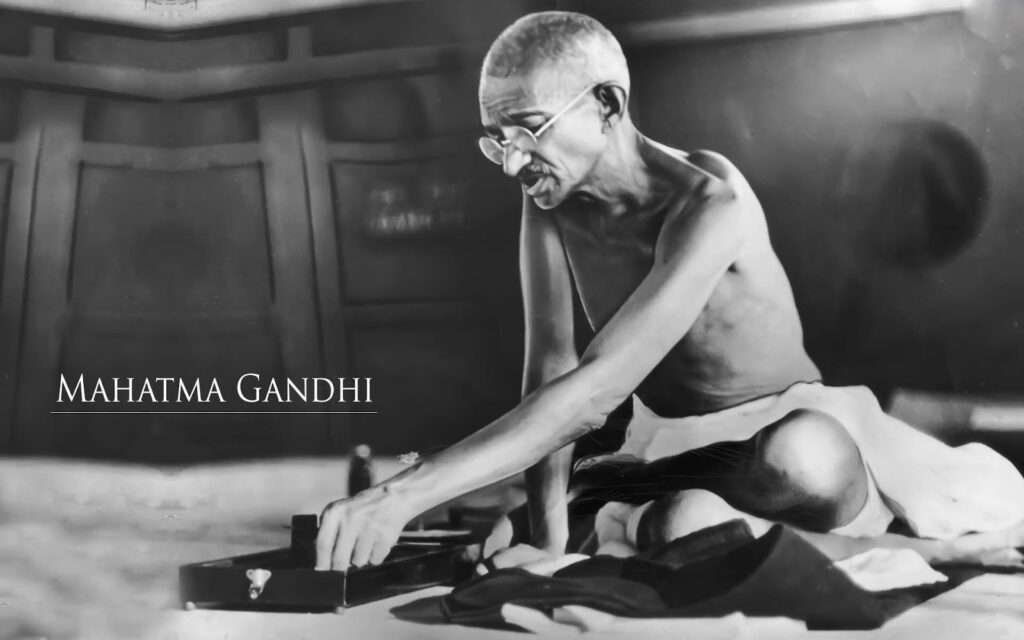
The Urgency of the Gandhi Message to the Divided World of the present day
The teachings of Gandhi seem very relevant in 2025. Technology is the unifying force, yet it is the dividing power. Political polarization, social disturbance, climatic emergencies, and online misinformation confronts society on all levels.
Gandhi demonstrated that the only solution is not arms, but non-violence. Bravery and honesty can overthrow kingdoms. His teachings appear in the present-day world:
- Wars displace millions of people, leaving children without homes and schools.
- Social media often spreads hate instead of empathy.
- Societies are grappling at cross purposes with religious and political differences.
- The state of the environment deteriorates when countries feign disagreement instead of working together.
In addition, the life of Gandhi makes us remember that simple deeds of courage and sincerity make ripples. Local movements encouraging peace, equality or climate justice relate to the idea of individual responsibility to make collective a difference that Gandhi cared about.
Also, leaders are directed by the message of moral courage brought about by Gandhi. Moral judgments can be less glitzy, and slower, though they have a long shelf life. Gandhi, in a world of short-term gratification, is reminding us that patience, empathy, and truth yield long-term solutions.
Lessons for Young India, Simple, Non-Violence
Gandhi lived a simple life. He wove his own garments, was a spender, and a moral richer. His lifestyle is prophetic in the present-day overconsumption, stress, and environmental destruction world.
To the young people of India, Gandhi provides some lessons that are practical:
- Courage Without Violence- He was imprisoned, even threatened and mocked at but he never used violence. Today students who are protesting against social injustice can learn that non violent sustained action can yield results over time.
- Mental Strength- The ability of Gandhi to remain calm in the face of adversity demonstrates that inner strength can overcome outside forces. The similar principles can be utilized by young professionals who have to deal with burnout or stress.
- Collective Action- Gandhi brought together millions of people through sympathy and non-violence. The modern day gender equality movements, digital freedom movements and climate action movements all demonstrate the same philosophy: peaceful cooperation leads to change.
- Sustainability and Ethical Living- Gandhi emphasized local production and spinning khadi which foresaw contemporary sustainability campaigns. Minimalism, social responsibility, and environmentalism are some of the values that young India identifies with today.
These teachings make youths aware of the fact that every decision counts. Individual actions, such as minimizing waste, serving a neighbor, promoting righteousness can have a group effect. The principles of Gandhi are practical, rather than idealistic.
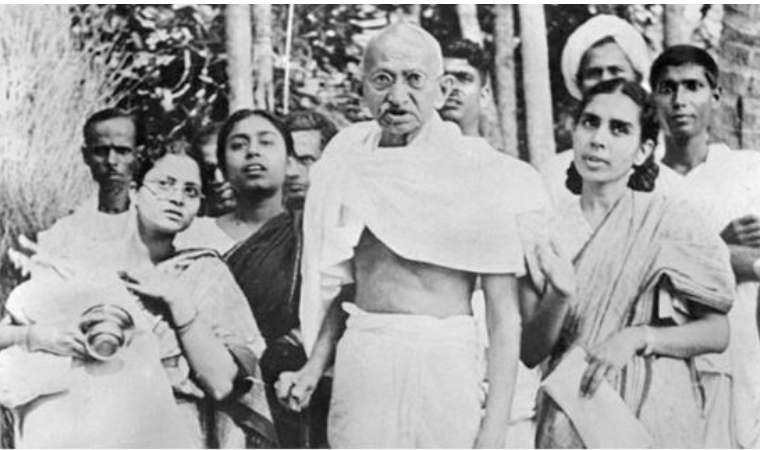
The Global Relevance and influence of Gandhi
The influence of Gandhi was far beyond India. He inspired leaders and movements all over the world:
- The philosophy of Gandhi was used in the American Civil Rights Movement by Martin Luther King Jr.
- Gandhi inspired Nelson Mandela in the South African anti-apartheid war.
- His techniques find their reflection in contemporary peaceful movements, such as European climate protests, or the pro-democracy movement in Asia.
Think of 2025 Gandhi: he would employ social media to combat fake news, conduct worldwide equality movements and run local businesses sustainably. The weapons might have varied, yet the content, truth, non-violence, empathy, and moral courage is eternal.
However, even his critics acknowledged that Gandhi reshaped societies with a moral vision. Moreover, the questions he asked—can peace triumph over violence? Will fake news destroy the truth?—remain relevant in 2025. Therefore, Gandhi urges individuals and the world at large to engage in self-reflection and thoughtful action.
Putting Gandhi Principles: From Reflection to Action into action
Gandhi Jayanti is not supposed to be a set of ceremonies, speeches or hashtags. It is a call to action. Gandhi poses the question: how do we live our daily life without violence, truth and empathy?
- Students can engage in peace, tolerance and climate action projects in schools.
- Parents can educate children on empathy, honesty and moral courage in families.
- Leaders are able to make ethical decisions and treat others fairly within work places.
- Citizens in communities can solve disputes by engaging in dialogue and not hostility.
Even minor skills, such as helping a neighbor, listening to them, or being morally responsible on the Internet, bear the spirit of Gandhi onwards. It lives on in the lives, not in the statues or garlands.
Gandhi Jayanti 2025 helps us to remember that a single individual with truth, courage and compassion can reform society. His teachings are still needed in a divided world which is politically, religiously, and greedy.
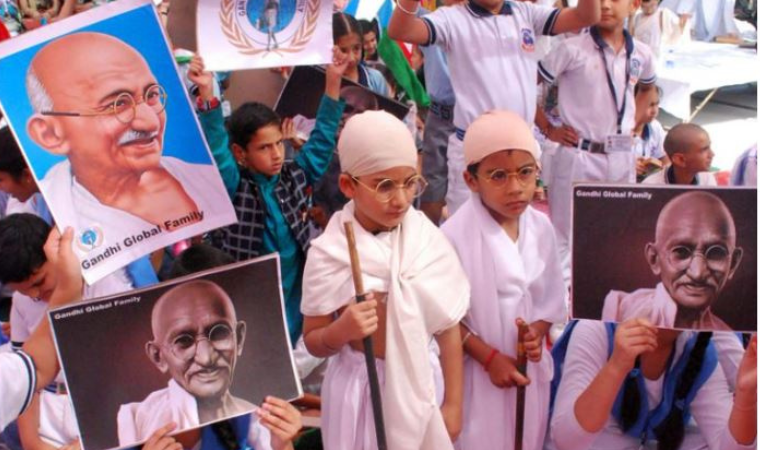
Closure: The Lesson of Gandhi
When India lights lamps and sings bhajans this October 2, 2025, we should not forget: Gandhi is not some far off person in history. He guides us to the present and the future.
As his own life demonstrates, change cannot be enduring without courage, truth, and empathy – not force and hate. The message of Gandhi is that we must be bridge builders, not wall builders.
Gandhi Jayanti 2025 is not merely a feast, but a call to lead a conscious life, do what is right and exercise the power of non-violence in all aspects of life.

